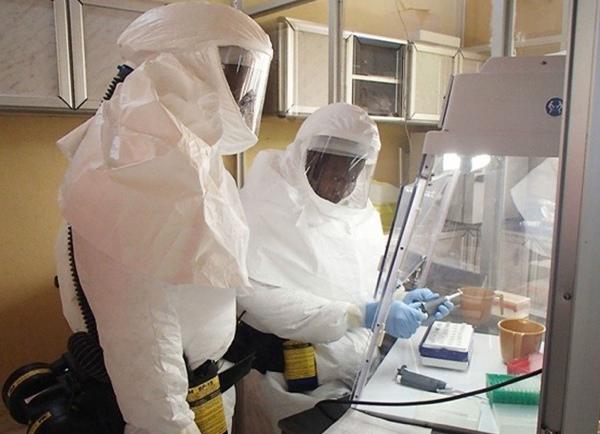Political Blogs
MO State Public Health Lab Designated as Ebola Test Lab
October 17th 2014 by Dee Loflin

“We stand ready to respond to suspected cases of Ebola should one ever occur in Missouri. This designation will give us the ability to quickly assist health professionals by performing the presumptive test here in Missouri,” Gov. Nixon said. “Missouri’s public health workers, health care providers and first responders have been training and preparing for potential Ebola cases and this will strengthen their ability to protect the health and well-being of Missourians.”
“Assisting with the testing of specimens is part of the important work we do with federal and local public health partners to identify diseases and protect the public health,” said Missouri Department of Health and Senior Services Director Gail Vasterling. “Receiving this designation means we can help test and respond to any suspected Ebola cases in a timely and accurate manner.”
Earlier this month, the Governor directed DHSS to seek the designation in order to enhance the state’s ability to quickly confirm or rule out potential cases of Ebola, should such a case occur in Missouri. Because of the designation as an Ebola testing laboratory, the Missouri State Public Health Laboratory may receive laboratory specimens as a part of the coordinated CDC and public health investigation and control of the disease. All specimens must have prior approval before being submitted to the Missouri State Public Health Laboratory.
“This is a positive step, because when it comes to detecting infectious diseases, hours – and even minutes – can be crucial,” said Gov. Nixon. “The faster we can confirm – or rule out – a potential case of Ebola here in Missouri, the more effectively our health providers can respond to protect the public.”
The Missouri State Public Health Laboratory has been a designated CDC Laboratory Response Network (LRN) laboratory since the inception of the national program in 1999. The LRN is an integrated network of state and local public health, federal, military, and international laboratories that can respond to bioterrorism, chemical terrorism and other public health emergencies through training, rapid testing, timely notification and secure messaging of laboratory results.
Additionally, the Governor today made available $3.3 million in funding for local public health agencies.
“Throughout the year, and especially now during flu season, our local public health agencies provide essential services that keep their communities healthy and strong,” Gov. Nixon said. “That is why my administration is releasing 3.3 million dollars to help local public health agencies carry out their responsibilities at the local level. Revenue is limited, but with more than 8,000 jobs added last month, it’s clear that our economy is moving forward and I’m pleased we’re able to make these resources available.”
Those who would like more information about the Missouri State Public Health Laboratory should visit: http://health.mo.gov/lab/index.php
Gov. Nixon to visit Missouri State Public Health Lab today for an update on the state’s public health preparedness efforts
Gov. Jay Nixon will visit the Missouri State Public Health Laboratory today (Oct 17) to discuss the state’s efforts to prepare for public health emergencies, including the Ebola virus, should a case of the disease occur in Missouri.
TODAY, Oct. 17
WHO: Gov. Jay Nixon
WHAT: Update on public health preparedness efforts
WHEN: 10:30 a.m.
WHERE: Missouri State Public Health Laboratory
101 N. Chestnut St.
Jefferson City, Mo. 65101
Last Updated on October 17th 2014 by Dee Loflin
https://showmetimes.com/Blogpost/usvl/MO-State-Public-Health-Lab-Designated-as-Ebola-Test-Lab

